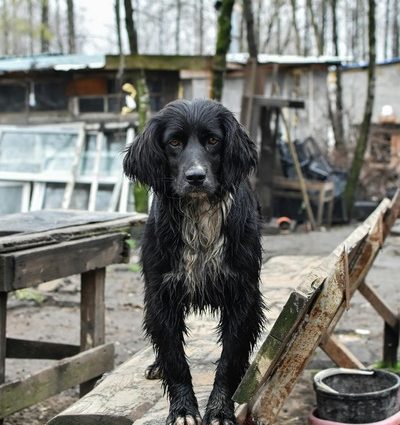Understanding pet allergy symptoms is crucial for pet owners who wish to ensure the overall well-being of their furry, feathered, or scaly companions. Just like humans, pets can exhibit various allergic reactions, which may impact their pet health. Identifying these symptoms early can lead to timely veterinary intervention and can greatly improve the quality of life for both pets and their owners.
Recognizing Common Pet Allergy Symptoms
It all starts with understanding what to look for. Here’s a simple list of common signs that your pet may be suffering from allergies:
-
Itchy Skin: Frequent scratching, biting, or licking at the skin could indicate an allergy.
-
Respiratory Issues: Sneezing, coughing, or wheezing may occur, especially in cats.
-
Eye Discharge: Watery, red eyes with discharge can point towards an allergic reaction.
-
Skin Inflammation: Red, inflamed skin or hives are a clear sign of distress.
-
Gastrointestinal Upset: Symptoms like vomiting or diarrhea can suggest food allergies.
Understanding What Triggers Pet Allergies
Several factors can trigger allergies in pets. It is essential to pinpoint these triggers to manage and treat the symptoms effectively.
-
Environmental Allergens: Pollen, mold, dust, and mites are common culprits.
-
Food Sensitivities: Ingredients in pet foods, such as beef, chicken, corn, wheat, or soy, might cause reactions.
-
Fleas: Flea bites are a leading cause of dermatitis in pets, and they can cause intense itchiness.
-
Household Chemicals: Cleaning products or fragrances can initiate allergies.
The Relationship Between Seasonal Allergies and Pets
Pets can experience seasonal allergies, which may only occur at certain times of the year. These allergies are often related to plant pollination and can affect your pet’s skin and respiratory systems.
-
Seasonal Itches: Increased scratching during spring or fall can be a telltale sign.
-
Change in Behavior: Lethargy or increased grooming can accompany seasonal allergies.
Importance of Visiting the Vet
When symptoms persist or worsen, it’s imperative to visit an animal hospital or animal clinic for a professional assessment. A thorough animal checkup can provide relief for your pet and peace of mind for you. Timely pet vaccinations can prevent certain allergies and should be part of regular veterinary care.
Advanced stages of pet allergies may require specialized care, such as pet hospice services, especially if allergies contribute to a decrease in the quality of life for terminal or elderly pets. Here, comfort and symptom management become the primary goals.
Comprehensive Pet Service Options for Allergic Pets
Pet owners have access to a plethora of pet services dedicated to addressing allergies. These range from pet grooming services, which can remove allergens from the coat to more specific treatments that may be necessary in some cases.
For instance, a dog experiencing severe reactions during labor may require an emergency C-section for dogs to ensure the safety of both the mother and the puppies. Always consult with a vet to determine the most appropriate action during such emergencies.
At-Home Management Strategies for Pet Allergy Symptoms
Managing your pet’s allergies often involves a combination of home care and professional treatment. Here’s how you can support your pet at home:
-
Clean Living Space: Regularly clean your pet’s living area to reduce the presence of allergens.
-
Special Diets: Consult your vet about hypoallergenic food options.
-
Regular Bathing: Use veterinarian-approved shampoos to alleviate skin irritation.
Importance of Tailored Veterinary Care for Each Pet
Every pet is different, and so are its health requirements. Canine and feline health check protocols may differ from those needed for birds, such as bird vet checkups or reptiles, which may necessitate reptile vet services. It’s important to seek out a vet with the right expertise for your type of pet.
In the face of a veterinary emergency, such as a sudden severe allergic reaction, immediate professional help is essential. An emergency vet clinic can provide rapid assessment and treatment to stabilize your pet.
Critical Role of Routine Veterinary Checkups
Preventative care through routine checkups for pets can catch early signs of allergies or other conditions. Here’s why they’re non-negotiable:
-
Early Detection: Proactive identification of allergies can prevent complications.
-
Immunization: Keeping up with your pet’s vaccination schedule is vital for preventing disease and some allergy-related issues.
-
Maintenance: Regular visits allow your vet to adjust your pet’s allergy management plan as needed.
Integrating Pet Health into Overall Veterinary Hospital Services
Excellent pet care extends beyond treating allergies and includes a holistic approach to an animal’s well-being. This approach may encompass services like pet dental care, pet radiology services, and neutering and spaying services, all of which can contribute to a pet’s overall health and potentially reduce allergic symptoms. Discounted vet services may be available to help manage costs.
Maintaining an integrated health plan for your pet with a trusted animal care center ensures that all aspects of their healthcare are addressed, from pet microchipping to nutritional counseling and animal health services.
Exploring Alternative and Supplementary Animal Health Services
When traditional treatments don’t fully resolve allergy symptoms, alternative or supplementary services may offer additional relief. This could include herbal remedies, acupuncture, or homeopathy, which some animal hospital clinics offer.
Always consult with your veterinarian before starting any new treatment to ensure it is safe and suitable for your pet’s specific health needs.
To End
Becoming well-informed about pet allergy symptoms is a significant step towards optimizing your pet’s health. These symptoms can vary greatly, and their management can be complex, necessitating regular vet visits and sometimes emergency interventions. It is the foundational knowledge combined with the expertise of veterinary care professionals that can help navigate the challenges allergies pose to our beloved pets. Remember, ensuring our pets’ health is as much a journey as it is a responsibility.

